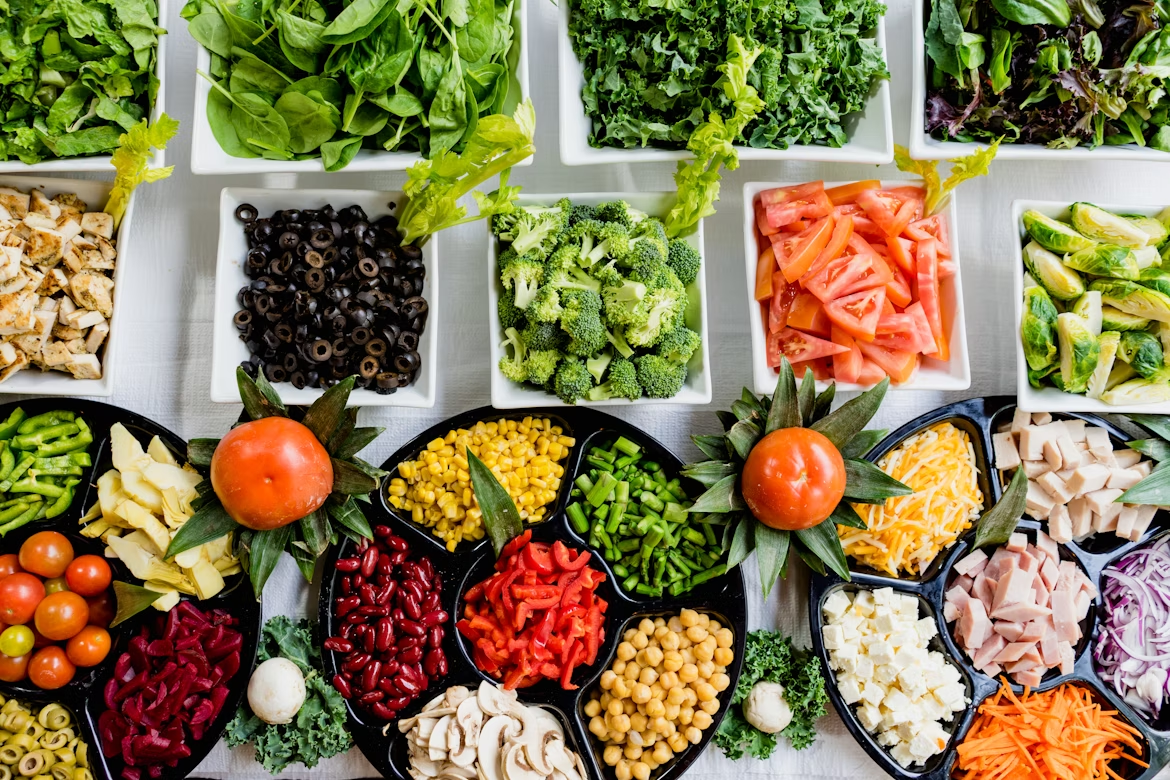Social Connection and Longevity: Why Relationships Matter More Than Diet
You’ve probably heard that eating well and exercising can help you live longer. But here’s something surprising: your friendships might matter even more. Research shows that strong social connections can add years to your life—sometimes more than a perfect diet or daily workouts.
This isn’t just feel-good advice. Scientists have tracked hundreds of thousands of people over decades. And the results are clear: people with good relationships live longer than those who feel lonely or isolated.
The Science Behind Social Connection and Longevity
Let’s look at the actual numbers. A massive review of 148 studies analyzed data from over 300,000 people. The researchers found something remarkable: strong social ties increased survival by 50%.
Think about what that means. By the time half of 100 people have died, five more people with strong relationships will still be alive compared to those with weak connections. That’s huge.
Plus, this benefit works across all ages. It doesn’t matter if you’re 25 or 75. Social connection helps everyone live longer.
How Does This Compare to Other Health Factors?
You might be wondering how relationships stack up against diet and exercise. Here’s where it gets really interesting.
The same research showed that social connections influence longevity more than:
- Physical inactivity
- Obesity
- High blood pressure
- Air pollution
In fact, the impact of relationships equals major health factors like quitting smoking and staying alcohol-free. That puts social connection right at the top of things that affect how long you live.
Why Do Relationships Help You Live Longer?
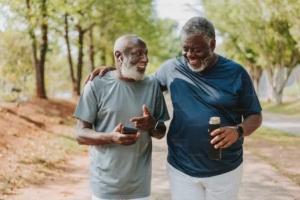
So what’s actually happening in your body when you have good relationships? The answer involves several different systems working together.
Lower Stress and Better Stress Response
When you feel connected to others, your body handles stress differently. Research from the National Institutes of Health shows that people with good social ties have lower levels of inflammation markers like C-reactive protein.
Your friends literally calm down your stress response. When something bad happens, talking to someone you trust helps regulate your cortisol levels (your main stress hormone). This matters because chronic stress damages your heart, immune system, and brain over time.
Healthier Behaviors and Better Habits
Here’s another way relationships help. People with strong social networks tend to take better care of themselves. Friends encourage you to eat well, exercise, and see the doctor when something’s wrong.
Think about it. You’re more likely to skip the gym when no one’s expecting you there. But when your workout buddy is waiting, you show up. This social accountability extends to all areas of health.
Physical Changes in Your Body
Studies measuring actual biomarkers found that social connection affects your:
- Blood pressure: People with more friends have healthier readings
- Heart rate variability: Better social ties mean a healthier heart rhythm
- Immune function: Connected people fight off infections better
- Inflammation levels: Less chronic inflammation throughout the body
These aren’t small changes. The differences show up clearly in blood tests and other medical measurements. Your relationships are changing your biology at a deep level.
The Dark Side: What Loneliness Does to Your Health
Now let’s flip this around. What happens when you don’t have strong connections? Unfortunately, the news isn’t good.
Loneliness acts like a slow poison. It increases your risk of early death, heart disease, stroke, dementia, and depression. Research shows that feeling lonely raises inflammation in your body—the same kind of inflammation linked to diabetes, cancer, and Alzheimer’s disease.
Loneliness Versus Being Alone
Here’s something important to understand. Being alone isn’t the same as feeling lonely. You can live by yourself and feel deeply connected to others. Or you can be surrounded by people and still feel isolated.
What matters most is the quality of your connections, not the quantity. One or two close friendships often beat dozens of shallow acquaintances.
Scientists call this “perceived social isolation.” It’s how lonely you feel that damages your health, not how many people are around you.
Different Types of Social Connection
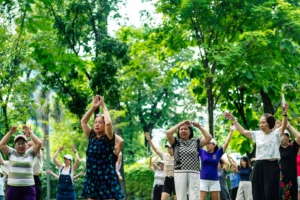
Not all relationships affect your health the same way. Researchers have identified several dimensions that matter for longevity.
Quantity: Your Social Network Size
This includes how many people you interact with regularly. Research from the Nurses’ Health Study tracked over 72,000 women for 22 years. Women with larger social networks lived significantly longer.
But bigger isn’t always better. The sweet spot seems to be having a handful of close relationships plus a wider circle of casual friendships.
Quality: How Good Your Relationships Feel
This matters more than network size. Do you have people you can truly count on? Can you share your real feelings with someone? These deeper connections provide the biggest health benefits.
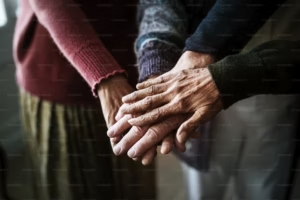
A 27-year study found that “positive relations with others”—relationships that are mutual and trusting—predicted lower mortality independent of just having lots of social contacts.
So quality beats quantity every time. One true friend who really gets you provides more protection than ten surface-level friendships.
Diversity: Different Types of Relationships
Having connections in multiple areas of your life also helps. This includes:
- Family members
- Close friends
- Work colleagues
- Community groups
- Religious organizations
- Hobby groups or clubs
When you have ties in different parts of life, you’re more resilient. If one area struggles, others can support you. This diversity protects your mental and physical health.
| Type of Connection | What It Means | How It Helps |
|---|---|---|
| Emotional Support | Having someone to talk to about feelings | Reduces stress, improves mental health |
| Practical Support | Help with tasks, rides, meals when sick | Makes daily life easier, ensures basic needs met |
| Informational Support | Advice, guidance, shared knowledge | Better decision-making, health choices |
| Companionship | Simply spending time together | Provides joy, purpose, sense of belonging |
Social Connection Across Your Lifespan
The impact of relationships changes as you age. But it never stops mattering.
Young Adults: Building Your Foundation
In your teens and twenties, social connections shape your stress response for life. Research tracking people from adolescence found that early social isolation increases inflammation levels that persist into adulthood.
The good news is that building connections now creates lifelong benefits. Your brain is still developing, so positive social experiences literally wire healthy patterns into your nervous system.
Middle Age: Maintaining and Deepening Ties
During your 40s and 50s, social connection affects your risk for chronic diseases. People with good relationships in midlife have lower rates of:
- High blood pressure
- Diabetes
- Heart disease
- Depression
But this is also when life gets busy. Work demands, raising kids, and caring for aging parents can squeeze out time for friends. Making relationships a priority now pays huge dividends later.
Older Adults: Connection as Medicine
For people over 65, social connection becomes even more critical. Isolated older adults face higher risks of cognitive decline and dementia. They’re also more likely to need nursing home care.
On the flip side, women with strong social integration were significantly more likely to reach age 85 or older in excellent health. Their relationships literally helped them achieve exceptional longevity.
How to Build Stronger Social Connections
Okay, so relationships clearly matter for longevity. But how do you actually build and maintain them? Here are practical strategies that work.
Start Small and Be Consistent
You don’t need to overhaul your entire social life overnight. Small, regular interactions add up. Try these simple steps:
Easy Ways to Connect More:
- Text a friend you haven’t talked to in a while
- Call a family member instead of just texting
- Say yes to invitations more often
- Chat with your neighbors when you see them
- Join one group activity or class
- Eat lunch with coworkers instead of at your desk
- Schedule regular catch-ups with close friends
The key is consistency. Weekly coffee with a friend beats occasional marathon hangouts. Regular small connections keep relationships strong.
Quality Over Quantity
Don’t stress about having a huge social network. Focus on deepening a few key relationships instead. This means:
- Being vulnerable: Share real thoughts and feelings, not just surface chat
- Listening actively: Really pay attention when others talk to you
- Showing up: Be there during both good times and hard times
- Following through: Do what you say you’ll do
These actions build trust. And trust creates the kind of deep connection that protects your health.
Find Your People Through Shared Interests
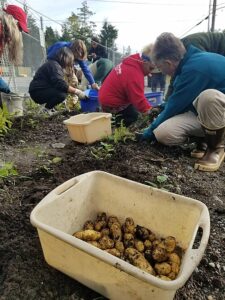
The easiest friendships come from doing things you enjoy together. Consider joining:
- A sports league or fitness class
- A book club or discussion group
- A volunteer organization
- A hobby group (photography, gardening, cooking)
- A religious or spiritual community
- An online community with local meetups
Shared activities give you natural conversation topics. Plus, you’re already doing something you like, so it doesn’t feel like work.
Use Technology Wisely
Social media gets a bad rap, but it can help maintain connections. Research on 12 million Facebook users found that certain online behaviors were linked to lower mortality risk.
But here’s the catch: only online activities that reflect real-world connections helped. Things like:
- Posting photos from actual social events
- Receiving friend requests (showing others want to connect)
- Moderate messaging (not excessive)
Scrolling through feeds without real interaction didn’t help—and might hurt. Use technology to strengthen existing relationships, not replace face-to-face time.
Overcoming Barriers to Connection
Let’s be honest. Building relationships isn’t always easy. You might face real obstacles.
When You Feel Too Busy
Modern life is packed. Between work, family, and basic responsibilities, who has time for friends? But here’s the thing: making time for relationships is as important as other wellness habits like eating well or exercising.
Try combining social time with things you already do. Walk with a friend instead of alone. Cook dinner together. Turn errands into opportunities to catch up.
When You’re Naturally Introverted
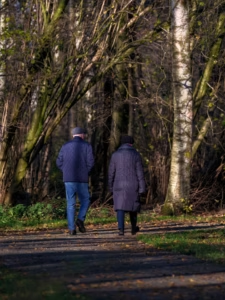
Being introverted doesn’t mean you can’t have strong connections. You don’t need tons of friends or constant socializing. A few deep relationships work great.
Focus on one-on-one time rather than big groups. Schedule breaks between social activities. And remember: quality matters more than quantity for everyone, but especially for introverts.
When You’ve Moved or Changed Life Stages
New cities, job changes, retirement—these transitions can disrupt your social network. Give yourself time to rebuild. It takes months to form new friendships, not weeks.
Put yourself in the same place regularly (same gym, same coffee shop, same class). Repeated exposure helps relationships develop naturally. And don’t forget to maintain long-distance friendships through calls and visits.
When Past Hurts Make You Cautious
If you’ve been hurt or betrayed, opening up again feels scary. That’s completely normal. Start with low-risk connections and take small steps. Therapy can help you work through trust issues.
Remember: not every relationship needs to be deep. Surface-level friendships still provide some health benefits. You can build up to closer connections over time.
Social Connection Versus Diet: Which Matters More?
Let’s address the title question directly. Do relationships really matter more than diet for longevity?
The answer is nuanced. Both are important. You can’t ignore nutrition and expect friendships to make up for it. Similarly, perfect eating won’t save you from the health effects of isolation.
But here’s what the research shows: the impact of social connections on longevity is larger than many people realize. It rivals or exceeds the benefits of:
- Eating a Mediterranean diet
- Maintaining a healthy weight
- Getting regular exercise
- Not smoking
So if you obsess over every food choice but neglect your friendships, you’re missing a huge piece of the longevity puzzle. Balance matters.
The Best Approach: Combine Everything
Why choose between social connection and healthy habits? Do both. In fact, they work better together.
Join a walking group to combine exercise and friendship. Take a cooking class to learn nutrition while meeting people. Volunteer at a food bank to build community while helping others eat better.
When you integrate social connection into other healthy habits, you multiply the benefits. Plus, it’s more fun to do things with others than alone.
What If You Already Feel Lonely?
Reading about how important relationships are might feel discouraging if you’re currently lonely. Don’t worry—you can change this.
First, know that you’re not alone in feeling alone. Loneliness is widespread, especially among younger adults and seniors. Millions of people struggle with this.
Second, small steps work. You don’t need to transform your social life overnight. Just start somewhere:
- Reach out to one person this week
- Join one new activity or group this month
- Say yes to one invitation you’d normally decline
- Strike up one conversation with a stranger
Each small action creates momentum. And momentum builds confidence. Before you know it, you’ll have a few meaningful connections.
When to Seek Professional Help
Sometimes loneliness stems from depression, anxiety, or past trauma. If you’re struggling, therapy can help. A mental health professional can address the underlying issues that make connecting difficult.
There’s also no shame in asking for help building social skills. Many people never learned how to make and keep friends. A therapist can teach these skills at any age.
The Bigger Picture: Creating a Connected Society
While individual actions matter, we also need social structures that support connection. Our modern world makes isolation easy and relationships hard.
Think about it. We work long hours in isolated cubicles. We drive alone instead of taking public transit. We shop online instead of visiting stores. We live in single-family homes with locked doors.
All these conveniences come at a cost: less spontaneous human interaction. We need to actively rebuild opportunities for connection.
This might mean:
- Designing neighborhoods with shared spaces
- Creating walkable communities
- Supporting community centers and libraries
- Offering flexible work schedules
- Encouraging volunteer programs
When society values connection, individual relationships become easier to build and maintain.
Your Action Plan for Better Social Connection
Ready to strengthen your relationships and boost your longevity? Here’s a simple plan to get started.
This Week
- Contact three people you haven’t talked to recently
- Have one real conversation (not just texts)
- Accept one social invitation
This Month
- Join one new group or activity
- Schedule regular time with a close friend or family member
- Deepen one existing relationship by being more vulnerable
This Year
- Build at least two new meaningful friendships
- Strengthen three existing relationships
- Create a regular social routine (weekly game night, monthly dinner, etc.)
- Help someone else feel less lonely
Remember: building social connection is a skill. It takes practice. Be patient with yourself and keep trying. The health benefits are worth the effort.
Final Thoughts
We’ve covered a lot of ground. The research is clear: social connection and longevity go hand in hand. People with strong relationships live longer, healthier lives than isolated people.
This effect is huge—bigger than many traditional health factors we obsess over. Your friendships literally change your biology, reducing inflammation and stress while boosting immune function.
But knowing this doesn’t help unless you act on it. So pick one small step from this article and do it today. Text an old friend. Schedule coffee with someone. Join a group.
Your relationships are a health intervention. They’re medicine without the side effects. And unlike diet or exercise, connecting with others feels good right away.
So reach out. Connect. Build those ties. Your future self—living a longer, healthier life—will thank you.
References
- Holt-Lunstad J, Smith TB, Layton JB. Social Relationships and Mortality Risk: A Meta-analytic Review. PLoS Medicine. 2010.
- Yang YC, Boen C, Gerken K, et al. Social relationships and physiological determinants of longevity across the human life span. Proceedings of the National Academy of Sciences. 2016.
- Cheng Y, Goodman-Meza D, Feleke BE, et al. The Prospective Association of Social Integration With Life Span and Exceptional Longevity in Women. The Journals of Gerontology. 2020.
- Ryff CD, Boylan JM, Tsenkova VK. Social connectedness, functional capacity, and longevity: A focus on positive relations with others. Social Science & Medicine. 2024.
- Hobbs WR, Burke M, Christakis NA, Fowler JH. Online social integration is associated with reduced mortality risk. Proceedings of the National Academy of Sciences. 2016.
- Berkman LF, Syme SL. Social networks, host resistance, and mortality: A nine-year follow-up study of Alameda County residents. American Journal of Epidemiology. 1979.
- Kawachi I, Colditz GA, Ascherio A, et al. A prospective study of social networks in relation to total mortality and cardiovascular disease in men in the USA. Journal of Epidemiology and Community Health. 1996.
- Kroenke CH, Kubzansky LD, Schernhammer ES, et al. Social networks, social support, and survival after breast cancer diagnosis. Journal of Clinical Oncology. 2006.
Related Articles
- Lifestyle Foundations for Optimal Wellness: Proven Habits That Transform Health and Longevity
- High Cortisol Levels: Causes, Symptoms & Natural Treatment Guide
- Grounding and Earthing Benefits: Does Walking Barefoot Reduce Inflammation?
About the Author
The Remedy Verified Team translates complex metabolic science into clear, practical strategies for everyday health.
Medical Disclaimer
This article is for informational purposes only and does not constitute medical advice. The information contained herein is not a substitute for professional medical advice, diagnosis, or treatment. Always seek the advice of your physician or other qualified health provider with any questions you may have regarding a medical condition. Never disregard professional medical advice or delay in seeking it because of something you have read in this article. If you have a medical emergency, call your doctor or 911 immediately. The Remedy Verified Team does not recommend or endorse any specific tests, physicians, products, procedures, opinions, or other information that may be mentioned in this article. Reliance on any information provided by this article is solely at your own risk.



